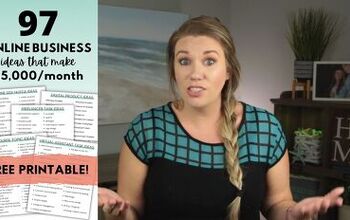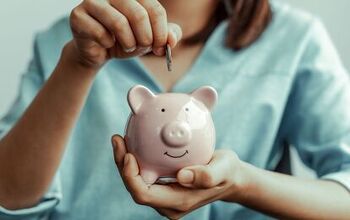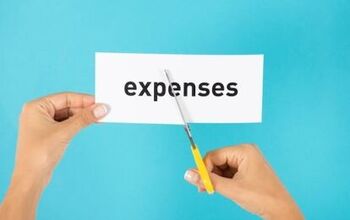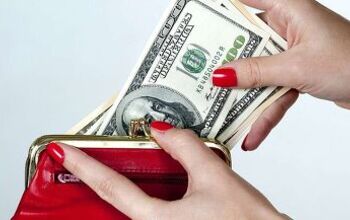How to Stop Living Paycheck to Paycheck

Struggling to make the ends meet and looking for ways on how to stop living paycheck to paycheck?
Use these tips to manage your money effectively and build savings even if you are not making enough.
If you struggle to make ends meet between paydays, know that you’re not alone.
Recent economic reports show that the living paycheck to paycheck percentage is anywhere from 50-75% of the population.
It’s stressful, but many of us know all-too-well how to effectively live paycheck to paycheck — at least, as best as we can! But a brighter future is possible.
Even if you aren’t earning much each year, you can still manage your money, build savings, and stop spending every penny you earn. Sound good? Read on to learn how I stopped living paycheck to paycheck and saved my first $1,000.
What Does Living Paycheck to Paycheck Means?
Before we dive in any further, let’s first discuss what does living paycheck to paycheck means? It may hold a different meaning for different people.
But in simple terms:
You are living paycheck to paycheck if all your monthly income goes towards covering your monthly expenses and there is no money or savings left by the end of the month. Basically, you are making just enough to cover your monthly expenses.
How to stop living paycheck to paycheck
You can stop living pay check to paycheck and build up your savings using these tips:
Create a Budget
The very first thing you must do when figuring out how to stop living paycheck to paycheck is to create a budget and stick to it. You may think making a budget will be a hassle or sticking to it means you’ll never get to do or buy anything fun, but the exact opposite is true.
Unless you’re a personal finance geek, creating a budget probably isn’t that exciting. However, if you take a few hours to figure up your bills and necessities for each month and allocate your earnings to take care of those needs, you may be surprised by the many benefits.
Benefits of a Budget
First, you can eliminate a lot of your stress. If you have a plan for paying your bills, you won’t have to stress as much every time something is due. Having a plan is the first step to taking control of your finances.
Second, you can see exactly what you’re spending. It’s important to know where your money is going each month when you make decisions about where to make cuts and how to pay down debt.
Third, once you see how much money you have leftover each month, you can decide what to do with that money. If you want to spend some on entertainment, you can work that into your budget. You will feel less guilty about eating out or going to the movies now and then since you’ve planned for it.
Cut Costs Where You Can
Even if you feel like you aren’t spending any extra money on things you don’t need, you likely are. Write down everything you spend during a week. You may be surprised that you wind up spending a lot of things you don’t need.
For example, if you buy coffee or eat out for lunch, you can save money there. Make your coffee and your lunch at home. Also, you can save quite a bit with these tips to save money on groceries.
Many of your bills may also be unnecessary. If you have cable or several streaming service subscriptions, try to cut back to only one subscription at a time. You can also call some of your utilities, such as your internet or cell service, and try to negotiate a lower payment.
If you spend a lot of money on eating out or entertainment, try to find lower-cost ways to have fun. Having dinner and a movie at home can be just as enjoyable and costs much less.
Pay Down Debt
According to many paycheck to paycheck living stories, people often struggle with money each month because they have debt they’re trying to pay off. If you have a lot of debt, you have to pay it off if you want to figure out how to stop living paycheck to paycheck.
There are several methods to p ay down debt. Some financial experts recommend starting with the highest debt first and working your way down. Others will suggest you start with your smallest debt. Once you pay off your smallest debt, take whatever you were paying on it each month, and roll it into the next debt you need to pay off.
Over time, you can pay off all of your debt and will likely have much more discretionary income each month. You can use this money to build your savings.
Avoid Financing Anything
As you pay off your debt, and even once it is paid, it is essential not to create any more debt for yourself. If you need to buy something, save up for it instead of financing. Creating debt just digs you deeper into a hole.
Of course, there are times you can’t avoid debt, such as a medical emergency, but try to exhaust all of your options before going into debt. Ask a family member or look for other ways to get money before financing.
Get a Side Income
If you research how to not live paycheck to paycheck on Reddit, you may find that many users recommend getting a side income. A side income may be a good option if you have worked out a budget and made as many cuts as you can, yet it still feels like you are struggling to pay your bills each month.
The good news is, there are many ways to get a side income. You no longer have to go out and get a part-time job. There are many ways to earn extra money from home, and you can often work on your own time so that you can fit it in with your other job and spending time with your family.
No matter your skills or talents, you can find a side income through running a blog, freelancing, becoming a virtual assistant, setting up an e-commerce store, and more.
Build Up Your Savings
If you are living paycheck to paycheck with no savings, you are setting yourself up for financial failure. If you can build up your savings, you will have some money on hand if you have an emergency. It can help you avoid going into debt.
Take whatever money you have leftover each month and put it into your savings. Make cuts everywhere you can and use some of your side income to build up your savings. You may even find that saving money can be addictive. You may wind up spending less on non-necessities to put money in the bank.
Conclusion
If you are trying to figure out how to stop living paycheck to paycheck, it is possible. According to living paycheck to paycheck statistics from 2019, the majority of Americans have very little discretionary income or money to save each month. By following these tips, you can break free from this cycle and get your finances back on track.




















Comments
Join the conversation